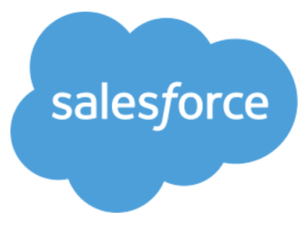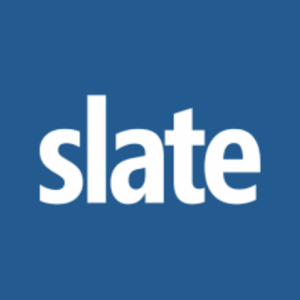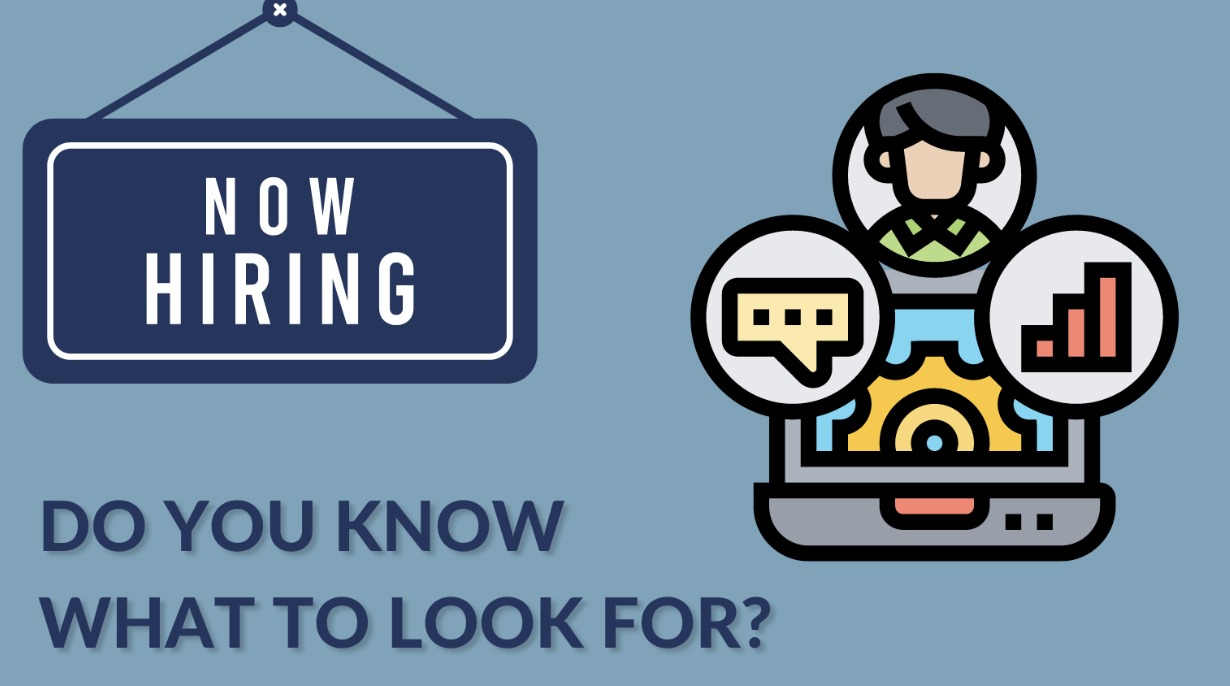Here are some top things to look for (and avoid) in a candidate and some tips for the hiring process.
At Kennedy & Company we work with dozens of CRM administrators every week, as well as many Higher Education institutions which are looking for or onboarding someone to fill this role. CRM administrators—whether for Salesforce, Slate or another CRM—are in high demand across industries. It can certainly be a challenge to find the right person and sometimes even more difficult to retain them in the role.
This article provides some key things to look for in a new CRM admin, as well as some things to avoid when experiencing a transition in the position. We will also look at some tips for finding the right professional for Salesforce and Slate specifically.
Three things to look for in a CRM Admin:
The right balance: 50% (or more) business user experience and 50% (or less) technical expertise.
You may think that you need a super technical person to fill this role. We find that some of the most successful CRM admins have a more even split between understanding the needs of the business users (i.e. an Admissions Operations department) and technical knowledge. In fact, we have seen many successful CRM admins who transition into the role, either from another institution or within the same institution, have limited-to-no experience as an administrator.Of course you need to be careful when considering someone with limited technical experience, but the most important part from the technical side is a proclivity toward learning. Technology is constantly changing, and you want someone who is willing to learn and try new things. Avoid candidates who will often say, “No, I’ve never done that before,” and consider those who are excited to learn and apply that knowledge.Our emphasis on this point is to not overvalue experience with the tool and look for those who will listen, understand, and have empathy for the business needs of your users. Make sure to look for someone willing and able to teach and reteach. The admin is often called upon to be the change agent and trainer in chief, and will need to effectively work and communicate with users at all levels as well as cross-functionally in your institution. Softer skills like patience, empathy, and a calm demeanor to explain, and re-explain will serve your team well. The best CRM admins can have their feet in both worlds, communicating technical concepts effectively with your IT personnel or other technical support, translating as necessary to business users, and vice versa. Understanding things like query languages and HTML code are nice-to-haves but not always a must.

Detail-oriented.
When evaluating candidates for this role, look for clues that the candidate will care about even the finest of details. You absolutely want (and need) someone who is not afraid to get into the weeds and understand those weeds. As much as these CRM companies will say that their tool is plug-and-play and tailored specifically for Higher Education, there are going to be settings and concepts that most users won’t understand, shouldn’t have to worry about, but someone has to master. If you are implementing a CRM for the first time, the person who fills this role should be willing to track and document all of the customizations and nuances specific to your institution. They need to take ownership over the initial settings and for the logic behind them. If you have an established CRM, the new admin will need to take initiative to understand everything that is already in place and the impact of making new changes.We can’t emphasize enough the importance of tracking details in this role, keeping them organized and accessible, and the ability to transfer that knowledge effectively if the situation arises in the future.
Already has exposure to the CRM software.
This may seem like common knowledge, but one of the most beneficial things in a new CRM admin is if they already have experience with the tool/platform. Of course, it is great if they were previously an admin at a college or university, but even if they were just a business end user of the software, it can still be beneficial. When you are interviewing people or scanning resumes, listen and look for hints that the applicant knows how data is structured in the system and how a college uses that data. For example, if the applicant was familiar with writing reports, querying data, or maintaining the data in any way, this probably means they have a good understanding of the core concepts of relational databases. Another critical component is if they have experience with multiple CRMs, again, even if it is just as an end user. If they have experience with Microsoft Dynamics (like the Ellucian or Anthology products), Fire Engine RED, LeadSquared, Slate, Salesforce, or similar, in addition to the one that you are hiring for, then they likely have a jump start on some of your other applicants.The key takeaway is that familiarity with best practices for a CRM in Higher Ed takes time. One of the most common things we hear from our clients is the phrase, “We don’t know what we don’t know.” Significant experience with cloud-based technology within the context of Higher Ed—even better, varied experience—will go a long way toward the cause of successful adoption of CRM software.
Remember: One size does not fit all.
If you have a smaller team or a new implementation with a pilot group, you may be able to hire someone with a little less experience with the tool, as long as they have the other key characteristics that we mentioned above. They will have the opportunity to grow with you, and as long as they are not intimidated by that notion, this could be an amazing opportunity for professional growth. Look for previous experience with “building the plane while flying,” projects that required adaptation and flexibility.
If you have a larger team to support, multiple departments, and/or a more established instance of a CRM, you will want someone who has a bit more technical knowledge of the CRM. You likely already have a lot of things implemented and configured. You need someone who is willing to dive in, understand your customizations and know how to improve upon what is already there. For larger or more complex implementations, you want someone who can help the team make informed decisions that position your CRM for scalability and growth. Look for signs that this candidate can quickly become a trusted voice on your team.
Having a trusted voice is especially important if the CRM admin will play a role in building a governance structure for the tool or the data within it. Some institutions already have data governance laws or committees, but others may have a need to create them. Even if previous policies are in place, a CRM often means new policies, processes, and ways of managing data. Effectively communicating these changes can be one of the most difficult jobs of a CRM admin, but the right structure can be essential to the integrity and security of student data.
Three things to avoid when filling the position:
A shared role.
One option that our clients will sometimes consider is to split the CRM admin responsibilities between two or more staff members, while half or more of their remaining time is focused on a different role at the college. We caution against this approach, primarily because it can lead to a lack of ownership and deferred responsibility. It can also lead to a siloed approach to building customization in the software, creating conflicts or errors. Even if the staffing solution is temporary in nature, do your best to maximize the amount of ownership the staff member will have over the functional operation of the tool.
Executive level/department head or someone that doesn’t have much interaction with the business operations filling in temporarily.
We will often see someone temporarily step into the role who does not have a grasp of the finer details of operational processes and how that is being tracked in the CRM. Sometimes this occurs because a senior staff member does not want to burden a staff member with a new responsibility and instead takes on the role themself. If it is necessary to have someone fill the gap from in-house, help the team understand the demand for this kind of work both inside and outside of the college. You may just have someone eagerly raise their hand to shift their role to fill the gap, as it would be an asset to their resume. In the spirit of maximizing ownership, do your best to reduce other responsibilities, especially as the staff member gets up to speed with the technology.
Outsourcing to a firm that does not specialize in Higher Education.
While procuring managed services is not always a bad thing when in need of a CRM admin, make sure you are selective with regards to which firm. A firm may advertise themselves as certified in the education space, but if they do not have a dedicated and experienced team for the industry, the results could be varied. Be proactive and ask for references of the firm and bios of the individuals that will be assigned to you. In a similar way that you would look for a permanent hire, make sure the firm offers strong knowledge in Higher Ed and in the software. See this as an opportunity to not only plug a gap, but to expand your adoption of the CRM and in your team’s knowledge of the platform.Kennedy & Company offers expert admin managed services, support, and admin coaching to many institutions across the country. Don’t hesitate to reach out if we can help in any way!As Slate and Salesforce are two of the biggest CRMs that we work with, we want to provide some guidance for finding admins for these specific platforms.
A few tips for finding the right Salesforce admin:
Advertise for the functionality you want to use and/or implement.
Salesforce is the world’s leading CRM and has functionality that spans across many industries. Any Salesforce admin candidate knows that they will need to be able to manage users, permissions, and automation. While you have to mention these basics, be sure to customize your job description and ads to highlight the functionality that you are looking to add or implement. For example, call out that this role will help in the implementation of a chatbot and portal for the college. This will draw much more attention from specifically-skilled professionals than a copied and pasted job description from another institution. Consider featuring the names of the specific cloud(s) in the job description or title (Experience, Service, Education, etc.)
Describe the ways that you will enable them to grow professionally and in their Salesforce knowledge.
There is a strong emphasis on growth of expertise in the Salesforce ecosystem. If at all possible, offer a budget or incentives for certifications, conference attendance, or online courses. If this is not possible, see if you can set aside time per week for this staff member to learn using the free materials such as Trailhead. Someone who has a proclivity to learn and grow in their experience will be eager to accumulate this extra knowledge and put it right to work.
Don’t always value certifications over soft skills and relevant experience.
We caution against over-valuing the certifications. A candidate may have the Salesforce Administrator certification and the Education Cloud certification but still may not be the best fit for your team. Instead, look for: Higher Education experience + Communication skills + Salesforce certification(s) OR some combination of Salesforce exposure, technical knowledge and the ability and desire to get Salesforce certification(s).

A few tips for finding the right Slate admin:
Understand the breadth of work needed as a Slate admin before hiring for the role and advertise accordingly.
You shouldn’t be afraid to look within your institution’s current staff members for someone who has an interest and aptitude for the platform; however, you should avoid placing this role on someone within your organization who will be required to continue doing their current role. As a Slate admin, the individual needs to have the space and time to learn and increase their knowledge about the platform. This space for learning is on top of maintaining the current state of the system and supporting your other staff members. If you want this role to be able to implement new features and provide support to your counselors, marketing professionals, and event managers, they cannot also be required to travel to high schools/colleges, take phone calls from prospective students, or create a lot of content for marketing campaigns.
Like the Salesforce tip above, you also need to be clear in how you will enable the Slate admin to grow professionally within your organization.
Does your institution have a team of Slate individuals already that they will be joining or will they be a solo captain? Do you anticipate this team growing and will this person lead that charge? Do you have or anticipate having multiple instances of Slate that they will be managing and building? All of these things will either be exciting or a drawback for applicants, but you should be clear and up front about the structure of your office so that you get qualified candidates for your role. In addition, you should ensure that you have room in your budget to send at least your admin to Slate Summit each year. This summit is essential for seeing how other institutions are doing things, connecting with other admins and end users, as well as learning what is coming in the Slate world over the next year or two.
Don’t undervalue the knowledge of coding languages and/or the proclivity to learn them.
While Slate has always prided itself on being a platform one does not need to know coding to set up and use, there are more and more pieces of the platform where it is extremely helpful to know SQL, HTML, and CSS. Examples being configurable joins, custom branding, portals, etc. Understanding a database structure allows the individual to spend less time searching with trial and error and more time ideating and building within your instance. Of course if you have these types of professionals in other areas of campus that you can tap into, or you have the budget to hire out for these types of things, this isn’t a necessity in your role, but it can be very helpful (and more cost-effective for you) to have someone in-house. As you start to move away from the standard Slate features and grow within your instance, having someone with these skills who can understand and build integrations between different softwares and third-party vendors or build out a dynamic portal and marketing campaigns becomes a higher priority.
And a few more general tips for getting interest in the position:
Benefits — Highlight the benefits that set you apart from other industries that may have higher salary figures. This may include tuition reduction, holidays, 401k matching, family-friendly flexibility, business hours, paid parental leave, etc.
Connection to the community — Many CRM admins do not want jobs where they are tucked away in a cubicle for 8 hours per day. Advertise how your employees can be a part of the campus community and a vibrant team. Fun idea: Record a video with one or two team members describing the position and post on social media.

Remote/Hybrid — Offer the flexibility to work from home. CRM admins find that a lot of their jobs end up being a support individual for the rest of your office – especially if you have a small team.While this is important for the continued growth of your staff members as well, the admin may find themselves being interrupted by phone calls, emails, and office pop-ins more often which hinders their efficiency and ability to learn about the new things that are constantly popping up in the CRM world. Offering them the ability to work from home a few days a week or permanently can help to avoid burnout. They will be able to block off time to work on the fun and exciting projects that pulled them into the industry and that your institution needs to stay with or ahead of the curve. While this is not always an ideal solution for all institutions, it does make the position more competitive and attractive.

